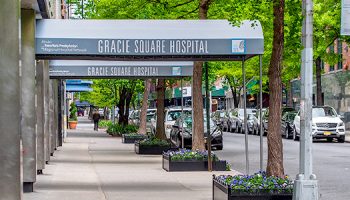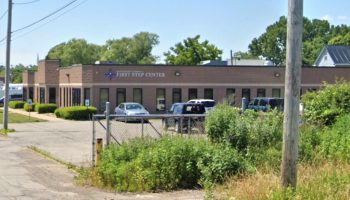About Twin County Recovery Services
Twin County Recovery Services (TCRS) supports individuals facing substance use challenges across Columbia and Greene counties in the Hudson Valley region of southeastern New York. They champion improved well-being among County residents through substance use prevention and treatment support that spans residential and outpatient programs, including medication-assisted treatment.
TCRS prioritizes low-cost care by accepting Medicaid and various commercial health insurance plans. They even offer sliding fee scale rates to eligible uninsured patients, ensuring no one is denied care due to an inability to pay.
Their outpatient clinic in Columbia County is nestled on Power Avenue in Hudson, next to the Hudson Historic District and a short walk south of the FASNY Museum of Firefighting. Here, opioid-dependent clients are guided toward long-term recovery through a blend of medication-assisted treatment (MAT) and intensive outpatient programs (IOP).
Medication-Supported Recovery For Opioid Addiction
MAT at this clinic begins with a detailed assessment and personalized care plan, which may include prescriptions for Vivitrol or Suboxone to manage withdrawal symptoms and ease cravings. You’ll then receive life skills training and structured therapeutic support through IOP to help you build resilience and maintain sobriety. Clients will focus on developing effective strategies to support long-term recovery.
I love how the sessions are scheduled to fit recovery into your daily routine without disrupting work or family responsibilities. They even offer specialized codependency counseling and parenting education, which can be especially helpful for those navigating family dynamics during recovery. To ensure sustained stability, this provider can connect you with local or county resources to help navigate housing, employment and transportation needs.
Court-Ordered and Community-Based Services
The facility is trusted and licensed by the New York State Department of Motor Vehicles (NYSDMV) to provide the seven-week Drinking Driver Program (DDP) for DWAI/DWI offenders. This seven-week course focuses on educating participants about the risks of impaired driving, promoting behavioral change and reducing the likelihood of future offenses. They even offer community and school-based prevention education programs as part of a broader effort to empower at-risk children and young people to make better decisions regarding substance use.
Levels of Care
-
Outpatient
In outpatient therapy, you’ll attend therapy sessions several times each week while living at home. This is ideal if you have a strong support system and a lower risk of relapse. Outpatient treatment offers flexibility to maintain work, school or family obligations.
-
Aftercare
Aftercare programs provide ongoing support after you complete a rehab program. They may include several components to help you maintain sobriety including therapy, community support groups and relapse prevention strategies. This gives you a network of resources as you reintegrate into your daily life.
-
Dual Diagnosis
Dual diagnosis programs address substance use disorders and co-occurring mental health conditions simultaneously. This integrated approach to care improves the likelihood of long term recovery and stability by addressing the root causes of addiction.
-
Intervention
An intervention is a structured and professionally guided conversation with an individual who is struggling with addiction. During the conversation, family and friends will encourage you to seek treatment. This is often a pivotal step for those resistant to getting help.
Detox Service Setting
-
Outpatient Detox
Outpatient detox gives you access to medically supervised withdrawal services while still allowing you to live at home. You’ll attend a clinic for treatment and monitoring. This flexible option is suitable for those with mild to moderate withdrawal symptoms who have strong support systems.
Programs
-
Adult (18+)
Adult programs address the substance use and life challenges specific to adults. Therapists can deliver sessions in individual, group and family settings. Services often include job support and life skills training in a structured environment.
-
Alcohol Detox
Alcohol detox programs offer medical support to help individuals withdraw safely from alcohol. Your care team may use medications to ease your symptoms and provide medical monitoring to address complications.
-
Men
Men's programs address substance use while also considering the social pressures, family roles and mental health concerns that are specific to men. You’ll learn healthy coping mechanisms as you build emotional resilience and develop communication skills.
-
Opioid Detox
Opioid detox uses medications to ease severe withdrawal symptoms. It also includes medical supervision to help you manage potential complications. These services allow you to stabilize and begin a recovery plan.
-
Women
Women's programs offer a safe and supportive space to focus on gender specific issues such as trauma, family roles and mental health conditions. Therapists tailor the sessions to address women's needs and foster empowerment in a healing and nurturing environment.
-
Young Adult (18 - 25)
Young adult programs are designed for individuals who are transitioning into adulthood. Topics of discussion typically include identity, independence and peer relationships. Providers may also offer life skills training and career support.
Accreditations
-
 SAMHSA
SAMHSA
Contact
350 Power Avenue
Hudson, NY 12534




